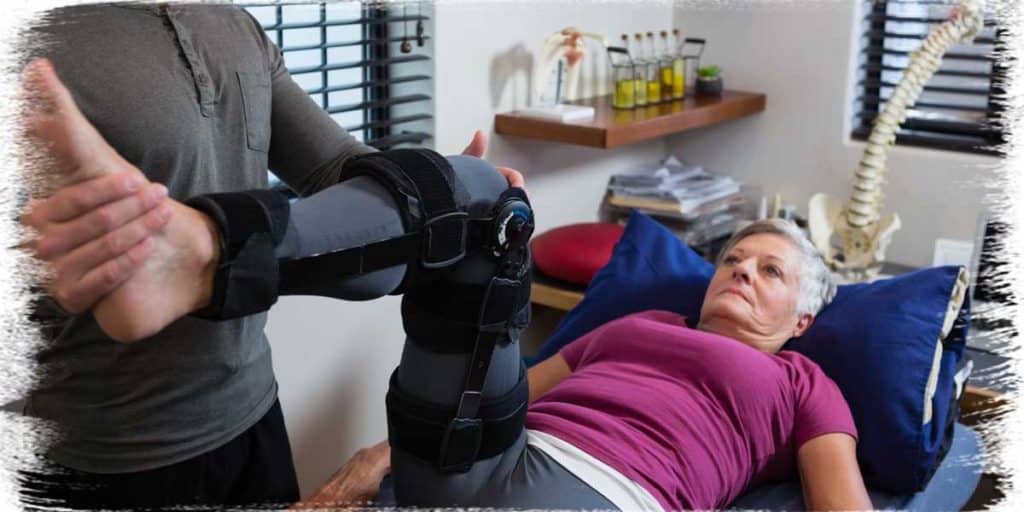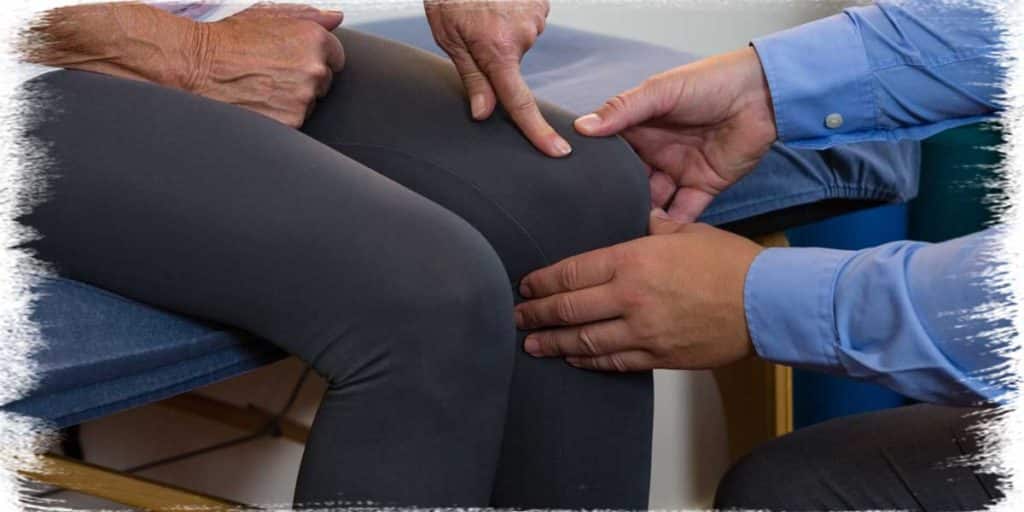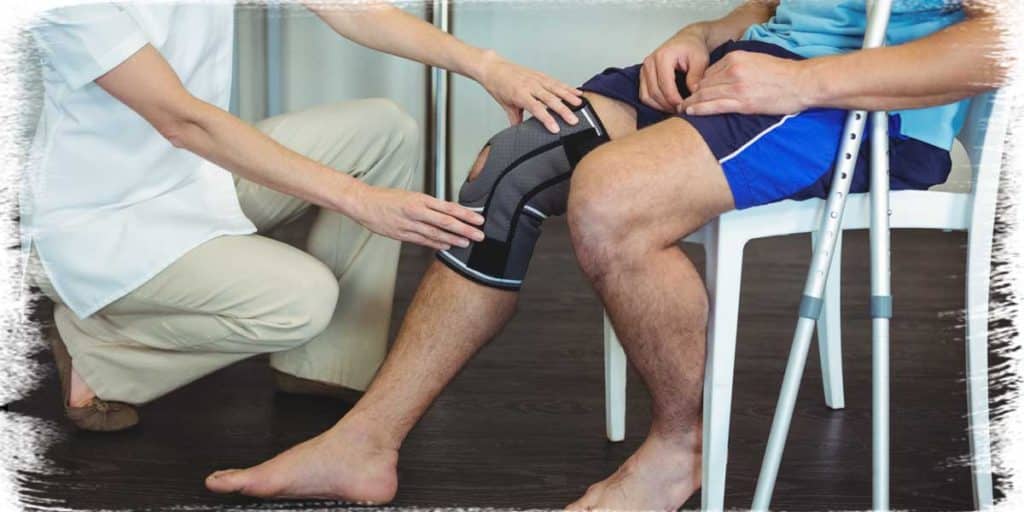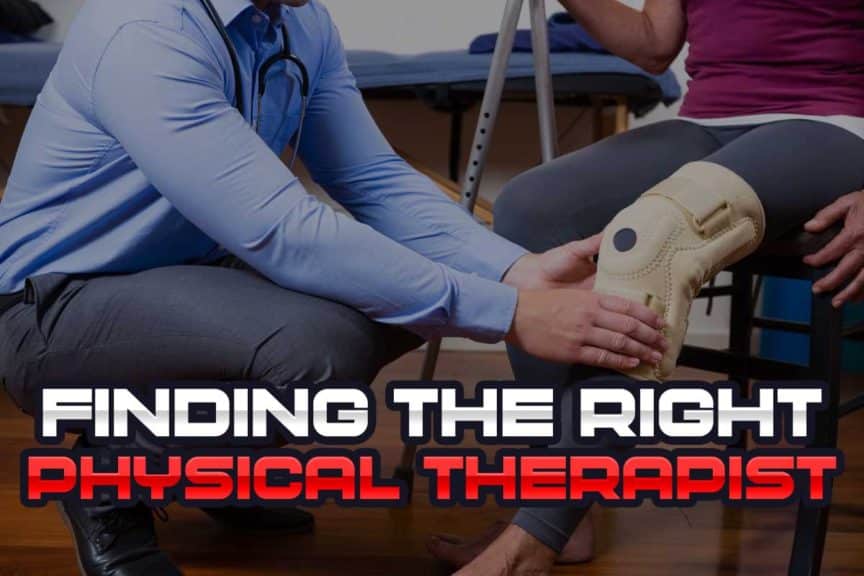Going to physical therapy can be a nerve-racking experience for many people, and it can get even more overwhelming if you’re trying to find a physical therapist who is the right fit for you. As a physical therapist, I understand this and want to do all that I can to help you out with this situation.
What follows within this article is my personal and professional insight on how to find the right physical therapist for YOUR needs! My hope is that by the end of this article, you will have confidence in knowing how to find the right therapist for you AND that you’ll have complete peace of mind as a result when your therapy sessions take place.
To find the right physical therapist, consider asking family and friends if they have anyone they recommend, seek a therapist specializing in your injury or condition, ask the clinic staff if they can recommend a specific therapist and make sure the clinic meets your financial requirements.
I’ll cover the specifics in detail below, so be sure to keep reading if you want to know the details!
ARTICLE OVERVIEW (QUICK LINKS)
Click/tap on any of the following headlines to instantly jump to that section of the article!
Ask friends or family if there’s anyone they can recommend
Finding a PT that specializes in your needs
Ask the clinic if they have anyone familiar with your injury or condition
Make sure you consider any financial factors
Final thoughts
Related article: How to Prepare for Your First Physical Therapy Appointment
Ask friends or family if there’s anyone they can recommend

I’m a firm believer that the best place to start looking for the right physical therapist is by asking family and friends if they have anyone they can recommend. Most friends and family members have had to go to physical therapy at some point in their lives, and as such, it’s a great place to start the inquiry process.
Since family and friends are the ones we tend to trust the most, we often take them seriously and have greater confidence with anyone they may recommend. Conversely, they may be able to mention who to stay away from if they or someone they know has had a negative experience in the past.
You don’t have to commit to a therapist or a clinic right away if they have a therapist or a place they can recommend. You can keep asking others or employ other tips mentioned within this article. However, family and friends are the perfect places to start finding either the right physical therapist for you or generating great leads for a clinic you can call or go to.
And, if they do have someone or a place they can recommend, you’ll want to follow through with the other tips in this article to make sure that they’ll be the right fit for you!
Finding a PT that specializes in your needs

While all licensed physical therapists have a baseline education across all the specialty disciplines within the field of physical therapy, you’ll likely want to find a physical therapist who has specialty training in the area that will benefit you the most.
Currently, the American Board of Physical Therapy Specialties recognizes nine board certifications in specialty areas. These areas are:
- Cardiovascular and Pulmonary (heart & lungs)
- Clinical Electrophysiology (using electricity to interpret & heal the body)
- Geriatrics (elderly populations)
- Neurology (neurological diseases such as strokes and multiple sclerosis)
- Oncology (cancer)
- Orthopaedics (muscles, tendons, ligaments, bones)
- Pediatrics (infants and children)
- Sports (athletic populations)
- Women’s Health (pelvic floor conditions, pregnancy, etc.)
- Wound Management (skin conditions such as pressure sores & skin breakdown)
With the human body being as complex and dynamic as it is, specialty areas allow therapists to gain advanced knowledge and training in treating others beyond what is covered in standard physical therapy school and licensing.
When most people think of physical therapy, they tend to only think of orthopaedics, as it’s the most common form of physical therapy. However, many conditions are better suited to a physical therapist with a different specialty other than this one.
So, make sure you know the general nature of your condition and see if you can find a specialist who can help you. If you’re unsure what specialty may be best for your condition, know that any licensed physical therapist will have enough training to help get you started with your rehabilitation before needing to refer you to an appropriate specialist for progressing in your recovery.
Related article: What to Expect for Your First Physical Therapy Appointment
Pro tip: If your physical therapist feels that your condition is outside of their scope of practice or area of specialty, they can (and should) refer you to an appropriate professional. I specialize in orthopaedics, but I refer other patients to other clinical specialists if I feel that the patient (and their condition) is better served by a physical therapist with a specialty outside of my own.
Ask the clinic if they have anyone familiar with your injury or condition

Often, you may have friends, family, or others recommend a specific facility or clinic, but not an actual therapist. Or, perhaps you’ve come across several positive online reviews for a clinic in your area, but not for a specific therapist.
In either case, if you are interested in a clinic but don’t have a specific therapist that’s been recommended, it’s a great idea to call the clinic and ask the reception staff if the clinic has a therapist who is familiar with your injury or condition.
This is commonly done across most out-patient clinics (clinics where you don’t stay overnight, such as with a hospital). By calling and asking if a therapist has familiarity, knowledge, or experience with treating your injury or condition, you can save a lot of time and hassle. You can also gain a lot of peace of mind by knowing that you’ve found a therapist with who you will be in capable hands.
If the clinic doesn’t have anyone you feel can help you out, they can very likely provide you with other specialists or clinics in the area you can call and speak with. Any physical therapist you work with wants you to be treated by an individual who can keep you safe and provide effective treatment. Don’t be afraid to call and ask around for someone you feel has the proper knowledge and training for treating your pain or condition.
Related article: Five Massive Reasons Why Physical Therapy is Important After an Injury
Make sure you consider any financial factors

Every individual’s financial situation and needs can be different, so it’s worth mentioning this and discussing it in a bit of detail below.
It’s a good idea to make sure that you know your financial constraints when trying to find a therapist (and thus, a clinic) who can help you. You will need to consider factors such as your personal budget (if paying out of pocket) or whether or not the clinic takes insurance (and if they accept your insurance provider).
While most clinics accept insurance, there’s a growing trend of those that don’t, only taking direct payment from the patient (there are several reasons for this, which are all beyond the scope of this article). You may also want to see if the clinic offers direct billing or if you will be required to pay upfront and submit your claim afterwards.
If your injury is the result of a workman’s compensation (WCB) claim, you may want to check with a clinic to see if they have a contract with either respective service based on your needs. Some clinics have contracts and accept patients with these claims, while others may not. Knowing all of this ahead of time can save you a lot of time, hassle and frustration.
If you are paying for your appointments out of pocket, be aware that the first session tends to cost a bit more than any follow-up sessions will. The therapist will need to take more time in your initial appointment to get to know your history and what’s likely going on with your injury or condition. Follow-up sessions tend to be shorter in duration and thus, tend to cost less.
Pro tip: Most clinics don’t post their rates online, but calling and asking will let you know their rates, which can help you better determine whether or not they will be within your budget.
Related article: Physical Therapy Exercises: Here’s How to Stick to Them for Success
Final thoughts
Going to physical therapy may not be the most exciting or enjoyable thing to do. Still, knowing that you’re being treated by a therapist with the proper training, specialty and knowledge for your needs will make the process a bit less dreadful. And, by knowing that the clinic you’re visiting meets all of your financial requirements, you’ll be less stressed when it comes to navigating the monetary side of things, whether you’re going through insurance or paying directly out of pocket.
In either case, get the process started by asking family and friends if they have anyone they can recommend and then taking things from there. Don’t be afraid to get on the phone and call different clinics to find out if they “tick all the boxes” that you feel are necessary to make you feel like you’ve found the best physical therapist for you!

Hi! I’m Jim Wittstrom, PT, DPT, CSCS, Pn1.
I am a physical therapist who is passionate about all things pertaining to strength & conditioning, human movement, injury prevention and rehabilitation. I created StrengthResurgence.com in order to help others become stronger and healthier. I also love helping aspiring students and therapists fulfill their dreams of becoming successful in school and within their clinical PT practice. Thanks for checking out my site!

